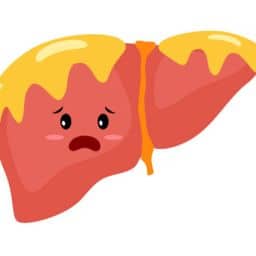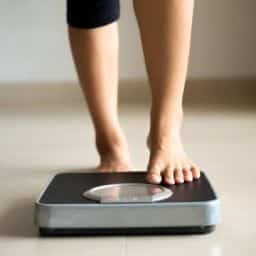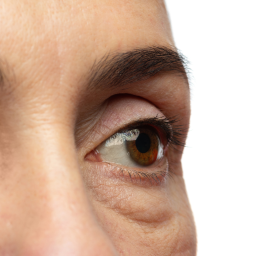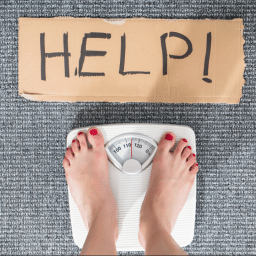
Ever notice that as the years pass, it feels easier to gain weight—even if you’re eating the same foods and staying active? Age-related weight gain is super common and totally normal. Aging is generally associated with increases in total adiposity over the adult lifespan until extreme old age when fat mass may decrease.
With a few simple shifts, you can take control of it! Let’s break down what’s really going on as we get older and look at some practical, science-backed tips to keep you feeling your best at any age.
Why Weight Gain Happens as We Get Older
There are a few big reasons why gaining weight becomes easier with age. Here’s what’s going on behind the scenes:
- Our Metabolism Slows Down
As we age, our metabolism naturally slows down. Research shows it drops around 1–2% each decade after we hit 20. Less muscle and some hormonal changes mean our bodies need fewer calories to function, which means if we keep eating like we did in our 20s, those extra calories stick around as body fat. Multiple studies showed that body fat increases by an average of 1% per year in both men and women aged 40-60 years.
- Shifting Hormones
Hormones like estrogen (in women) and testosterone (in men) naturally decrease with age. For women, menopause can cause the body to store more fat around the abdomen. For men, lower testosterone can lead to more body fat and less muscle mass, too. These hormone changes are one of the main reasons for the shift in body composition over time.
- Less Muscle Mass
Muscle is like a calorie-burning machine. As we get older, we naturally lose muscle—a process called sarcopenia—which can start as early as age 30. Since muscle burns more calories than fat, this shift means our bodies need fewer calories to keep us going.
- Less Physical Activity
With busy schedules or physical limitations, it’s easy to become less active as we age. The fact that approximately 60% of adults choose to be sedentary and engage in little recreational activity make these changes even more prominent. But staying active is one of the best ways to fight weight gain since exercise helps maintain muscle and boosts our metabolism.
Why Staying on Top of Weight Gain Matters
Gaining some weight is totally normal as we age, but too much can lead to some health risks, including:
- Heart Issues: Extra weight, especially around the belly, can increase the risk of heart disease and high blood pressure.
- Type 2 Diabetes: More abdominal fat can make it harder for the body to process sugar, raising the risk of type 2 diabetes.
- Joint Pain: Carrying extra weight puts more pressure on our joints, which can lead to arthritis and joint pain.
- Higher Cancer Risk: Extra weight has been linked to a higher risk of certain cancers, like breast and colon cancer.
Simple, Science-Backed Tips for Managing Weight as You Age
The good news? Age-related weight gain isn’t set in stone. Here are some easy, evidence-based strategies for staying at a healthy weight:
- Get into Strength Training
Lifting weights or doing bodyweight exercises like squats and push-ups can help preserve muscle, which keeps metabolism up and burns calories. Aim for two to three strength-training sessions each week. - Stay Active
The Ministry of Health Malaysia suggests being physically active everyday, be it occupational work, house chores and sports. As a general rule, 30 minutes a day of moderate to vigorous intensity activity on five or more days a week, is considered sufficient for health benefit. Moving more not only burns calories but also boosts overall energy and keeps muscles strong. - Eat More Protein
Protein can help keep you feeling full and helps with muscle maintenance. Experts suggest that older adults benefit from higher protein intake to counteract muscle loss and manage weight.
- Focus on Fiber-Rich Foods
Eating high-fiber foods like veggies, whole grains, and legumes helps with fullness, so you’re less likely to snack. Plus, fiber is great for digestion and helps keep blood sugar levels steady. - Practice Mindful Eating
Paying attention to hunger and fullness cues can help reduce overeating. Mindful eating encourages us to savor food rather than eating out of habit or stress. - Prioritize Good Sleep and Stress Management
Poor sleep and stress can lead to hormonal shifts that make us hungrier and encourage the body to store fat. Getting quality sleep (7–9 hours per night) and managing stress with activities like meditation or yoga can help keep hunger and cravings in check.
When to Seek Medical Help
If lifestyle changes aren’t making a difference, or if you notice rapid, unexpected weight gain, it’s a good idea to chat with your doctor. Some medical conditions, like thyroid issues, or hormone deficiencies can contribute to weight gain.
Final Thoughts
Age-related weight gain is common, but it doesn’t have to take over. With a few adjustments, you can stay active, healthy, and feeling great. Embrace the journey, keep moving, eat mindfully, and remember that aging is just another stage of life—one where we can still feel amazing and look graceful!
CONTACT US
Ready to take control of your fatty liver and overall health? Reach out to Revix Clinic in Selangor for more information or to schedule a personalized consultation.
Contact Details:
📞 Phone: +6017-7815237
✉️ Email: ask@revixclinic.com
📍 Address: 52A-G, Jalan Eco Santuari 8/2A, Eco Santuari 42500, Selangor
🌐 Website: https://revixclinic.com.my/
Discover more about our expert services and treatments on our website. We offer a range of weight loss treatments designed to address your problems, including:
✨ Weight loss: By increasing your metabolic rate and improving insulin resistance, we are able to help you achieve your desired weight.
🔥 Reducing body inflammation: Detoxification of heavy metals and anti-oxidants prescription help to reduce inflammation and increase liver’s own detoxification capacity.
❄️Coolsculpting: Non invasive treatment to freeze fat cells beneath the skin.
💪Emsculpt: Non invasive treatment to strengthen muscles without weight lifting.
Connect with our experienced doctors who are committed to guiding you on your journey to achieving your health goals. We look forward to assisting you in attaining a healthier lifestyle!
References:
- Kuk, J. L., Saunders, T. J., Davidson, L. E., & Ross, R. (2009). Age-related changes in total and regional fat distribution. Ageing research reviews, 8(4), 339-348.
- US Department of Health and Human Services. (1996). Physical activity and health: A report of the Surgeon General. http://www. cdc. gov/nccdphp/sgr/pdf/execsumm.pdf.
- Williams, P. T., & Wood, P. D. (2006). The effects of changing exercise levels on weight and age-related weight gain. International journal of obesity, 30(3), 543-551.
- Lewis, C. E., Jacobs Jr, D. R., McCreath, H., Kiefe, C. I., Schreiner, P. J., Smith, D. E., & Williams, O. D. (2000). Weight gain continues in the 1990s: 10-year trends in weight and overweight from the CARDIA study. American journal of epidemiology, 151(12), 1172-1181.
- Goh, V. H. H., & Tong, T. Y. (2010). Association of age and physical exercise with bodyweight and body composition in Asian Chinese men. The Aging Male, 13(4), 265-274.









 Protein can help keep you feeling full and helps with muscle maintenance. Experts suggest that older adults benefit from higher protein intake to counteract muscle loss and manage weight.
Protein can help keep you feeling full and helps with muscle maintenance. Experts suggest that older adults benefit from higher protein intake to counteract muscle loss and manage weight.




